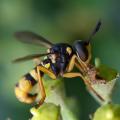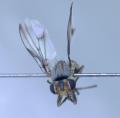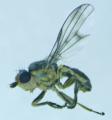Diptera.info :: Identification queries :: Diptera (adults)
Who is here? 1 guest(s)
|
Anthomyiidae : Pegomya rufina?
|
|
| sbushes |
Posted on 12-12-2021 00:30
|
|
Member Location: Posts: 643 Joined: 29.04.21 |
Would anyone agree this is Pegomya sp.? ... and if so would anyone agree any of the following points? 1. Legs are partly yellow (not entirely black/obscurely dark brownish) 2. Lower calypter larger in area than upper 3. Last three tarsomeres of mid and hind tarsi are NOT widened* If the above conditions are correct, this is P.rufina I believe, according to the key to Pegomya females, in "Anthomyiidae Handout Vol 1" by Ackland/Bentley/Brighton. ( from DF members area - https://dipterists.org.uk/anthomyiid-scheme/home ) sbushes attached the following image: 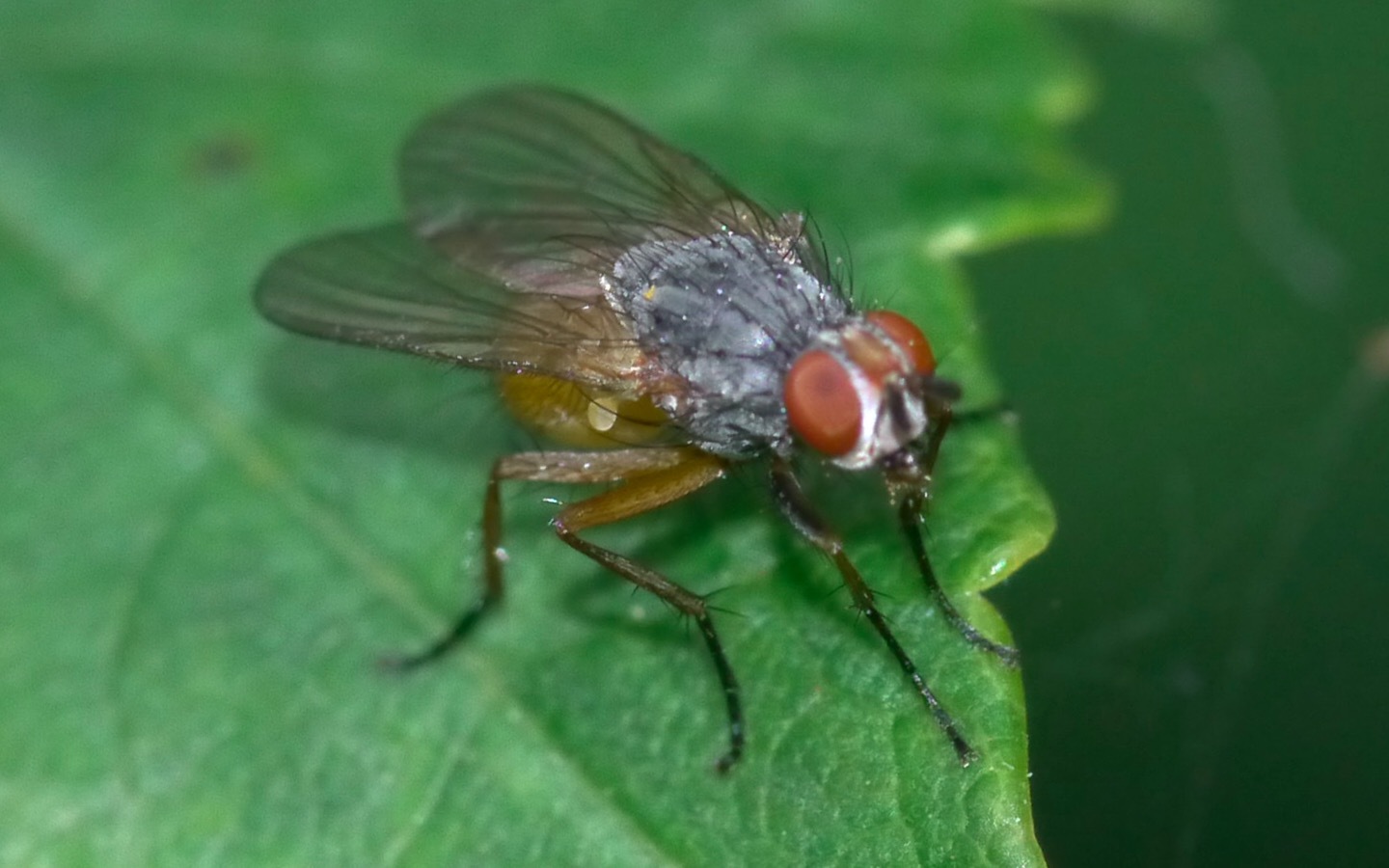 [203.66Kb] Edited by sbushes on 12-12-2021 12:51 |
|
|
|
| sbushes |
Posted on 12-12-2021 00:30
|
|
Member Location: Posts: 643 Joined: 29.04.21 |
Lower calypter larger? ...or not clear enough to say?
sbushes attached the following image: 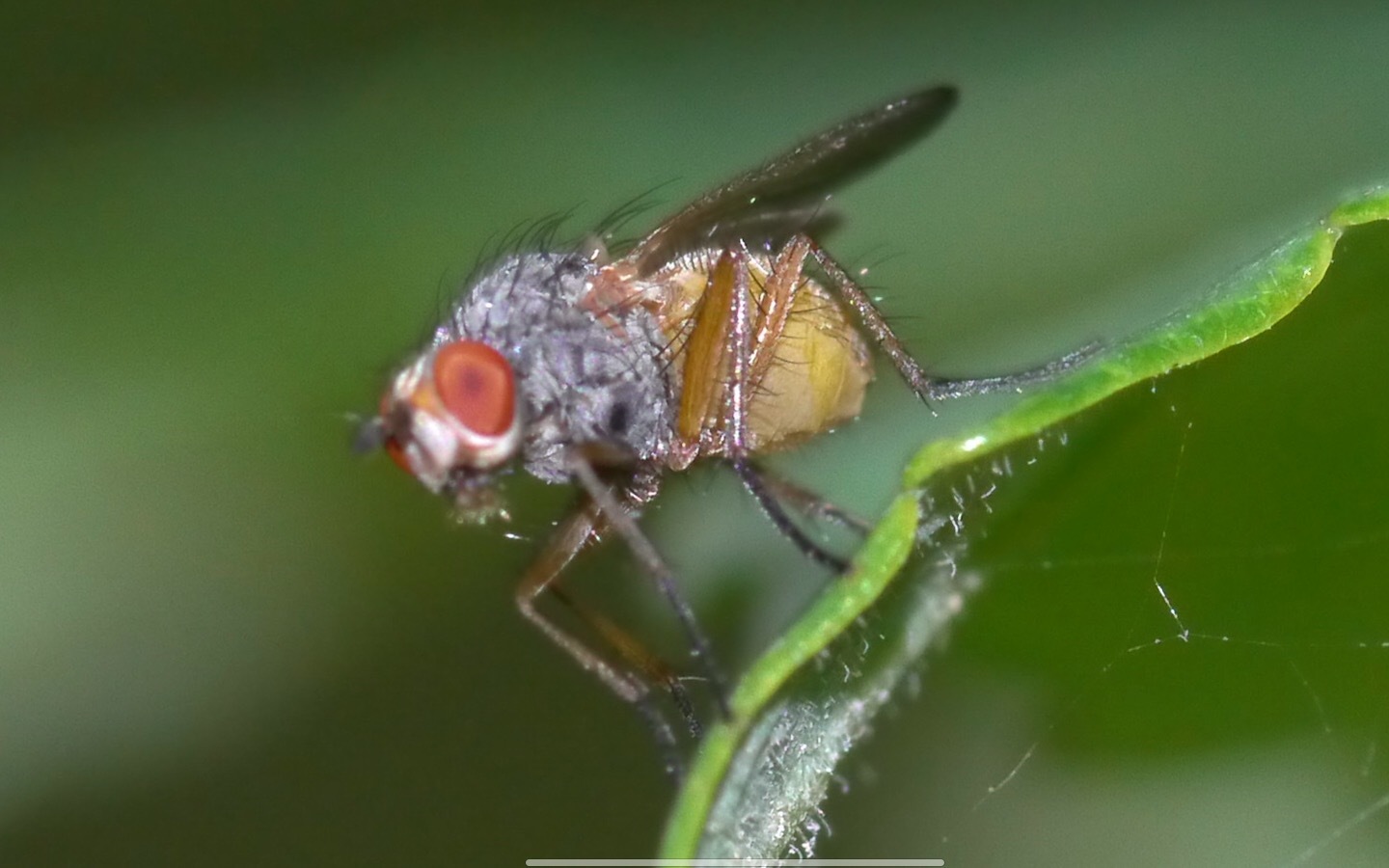 [188.5Kb] Edited by sbushes on 12-12-2021 01:24 |
|
|
|
| sbushes |
Posted on 12-12-2021 00:31
|
|
Member Location: Posts: 643 Joined: 29.04.21 |
Not widened tarsi(?)
sbushes attached the following image: 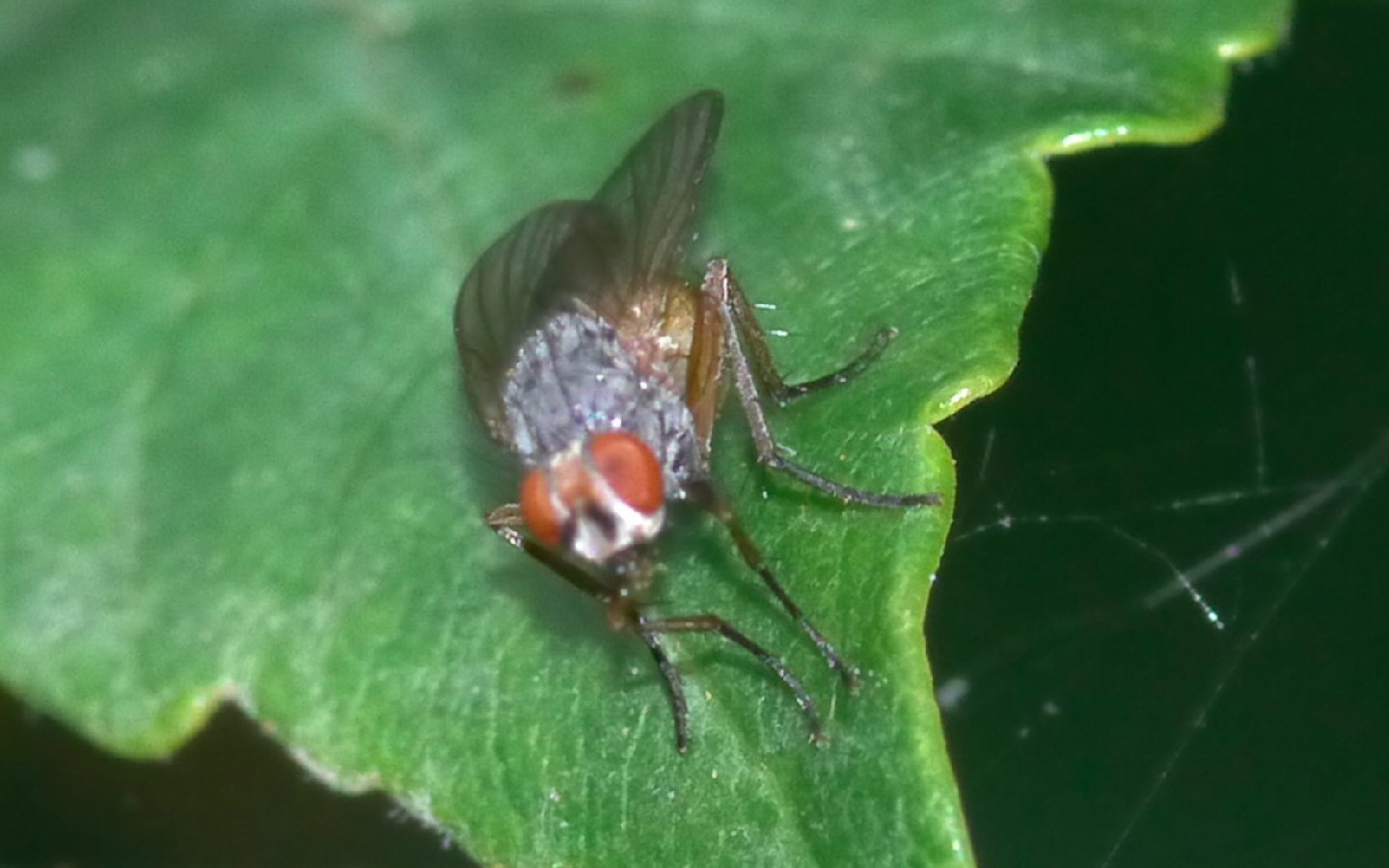 [191.31Kb] Edited by sbushes on 12-12-2021 12:53 |
|
|
|
| sbushes |
Posted on 12-12-2021 00:31
|
|
Member Location: Posts: 643 Joined: 29.04.21 |
Further images of same individual can be found here: www.inaturalist.o...s/53353109 Edited by sbushes on 12-12-2021 03:35 |
|
|
|
| sbushes |
Posted on 12-12-2021 01:07
|
|
Member Location: Posts: 643 Joined: 29.04.21 |
*For comparison of "widened" tarsomeres, I found this observation - https://diptera.i...d_id=32353 Note also, on key, this just leads to P.winthemi - which is confirmed at this link with reference to yellow palps and pale tip to scutellum. Both of which this observation does not have. It also has pale antennae. So it seems likely safe I think to rule this option out. -------------------------------------------------------------------------------- Description of P.rufina from key: "Palpus and antennae dark brown or black. Apical tarsomeres of all tarsi with a pair of tiny sclerotized ventral processes in the form of flattened boomerangs. Frontal vitta without cruciate setae. All tarsi black. Abdomen orange and strongly shining ........................... ......................................................................rufina (Fallén) Edited by sbushes on 12-12-2021 12:55 |
|
|
|
| Jump to Forum: |



